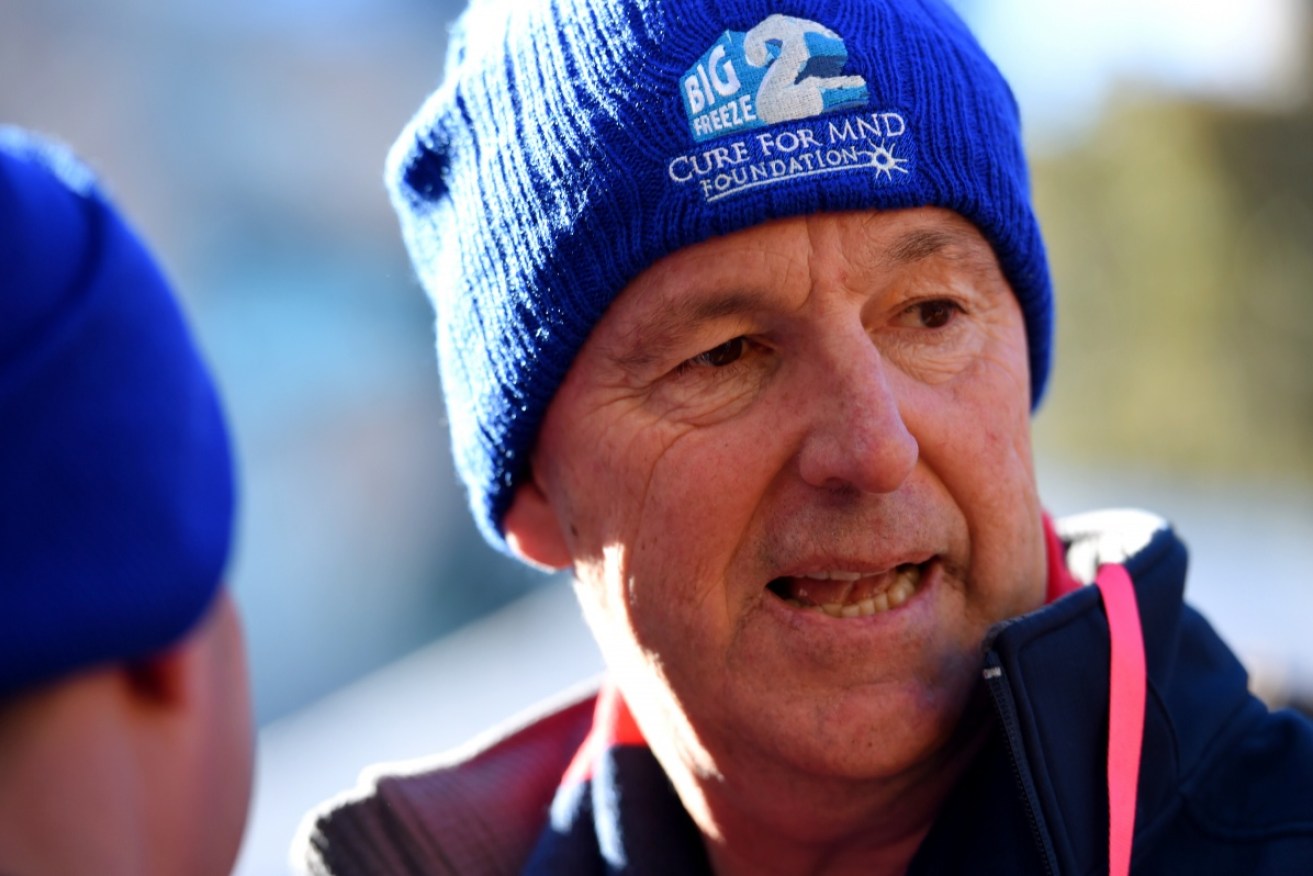New urine test gives hope for MND cure


Former AFL legend Neale Daniher has been the public face of raising awareness for MND. Photo: AAP
A new urine test for motor neurone disease could improve treatments for the deadly neuro-degenerative condition, scientists say.
Motor neurone disease (MND) causes nerve cells that control muscle movement to progressively die, leaving sufferers with a life expectancy after diagnosis of one to five years.
In a first for science, the new test measures a key protein in the urine of MND sufferers over time to determine whether a treatment is working or not.
Developed by South Australian and American researchers, the new test measures the urinary protein 75ECD, which appears more as the disease progresses.
Mary-Louise Rogers from Flinders University was part of the team who developed the test and said it promises to be a vast improvement.
“It’s important because at the moment in clinical trials, what the clinicians are mostly using is like a questionnaire-based marker where they ask different things about their daily living and it’s added up to a score,” Dr Rogers said.
What we can do is add to this and say ‘We can use this in a clinical trial to see whether the treatment is working or not.’
“Also there is no cure and people die within two to three years of diagnosis most often, at the most five years.”
Urine test offers new hope
Kirsten Harley, who is still able to speak, was diagnosed with MND in 2013 after muscle cramps in her hands and feet became more frequent.
Others with the disease are not so lucky as they progressively lose the use of their limbs and ability to speak, swallow and breathe.
Ms Harley spoke to the ABC over the phone with the help of a friend.
“I’m speaking to my mobile phone, so I have it on speaker and I have a friend holding it up to my mouth,” she said.
I can’t hold [the phone] myself because I don’t have arm muscles that work.”
Currently, tests to measure the progress of MND are not considered as robust as they could be.
“My breathing function is regularly monitored, and there are questionnaires to see how my speech and swallowing are going and examinations of my strength and muscles,” Ms Harley said.
She said the new urine test provided hope for the future and people yet to be diagnosed with MND.
“I’m really excited by all the research that’s happening in all kinds of different directions, knowing long-term that will lead to a world without MND.
“And in the shorter term, being able to pick up MND, diagnose more quickly, start treatments more quickly.
“If there’s a biomarker test that can actually show what’s happening at that cellular level, that I think would be helpful for the researchers.”
– ABC








